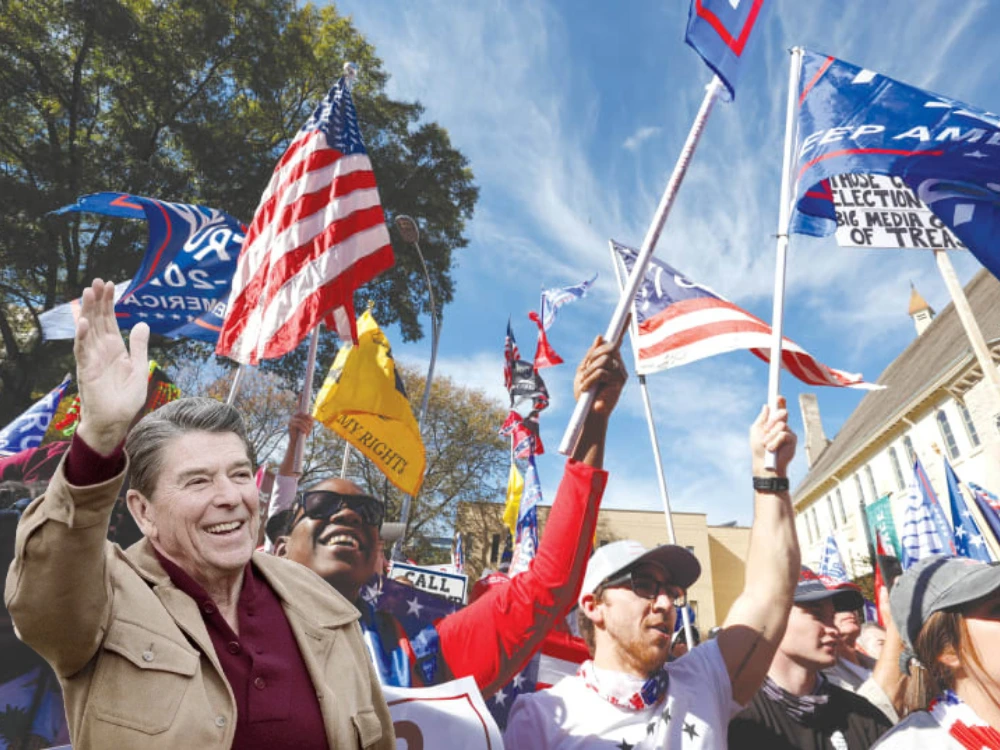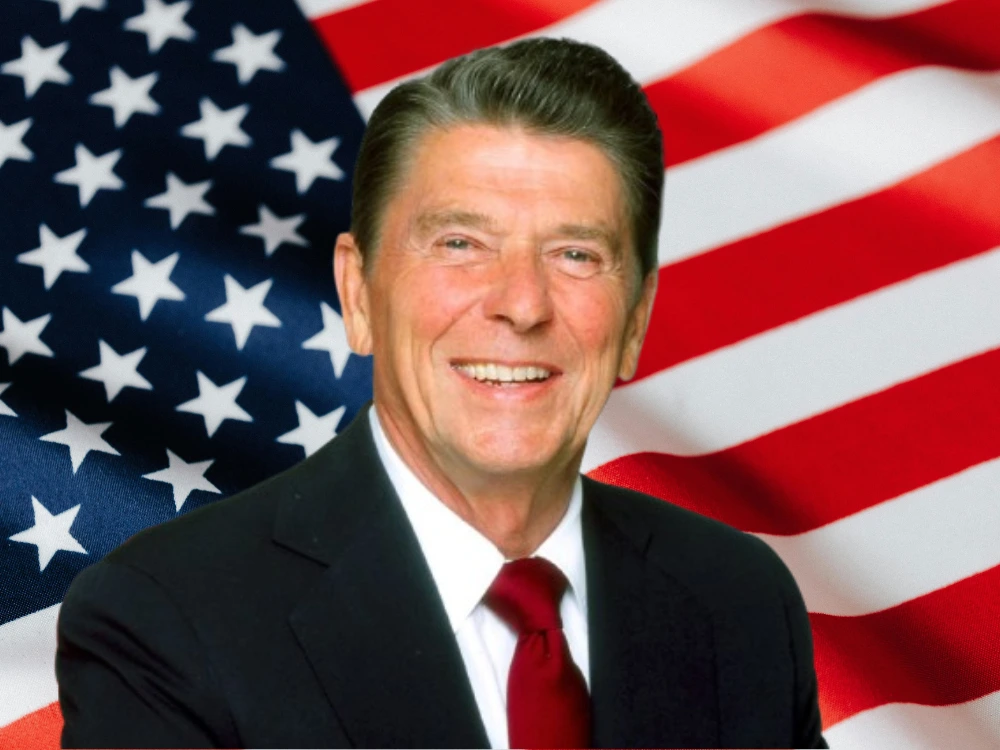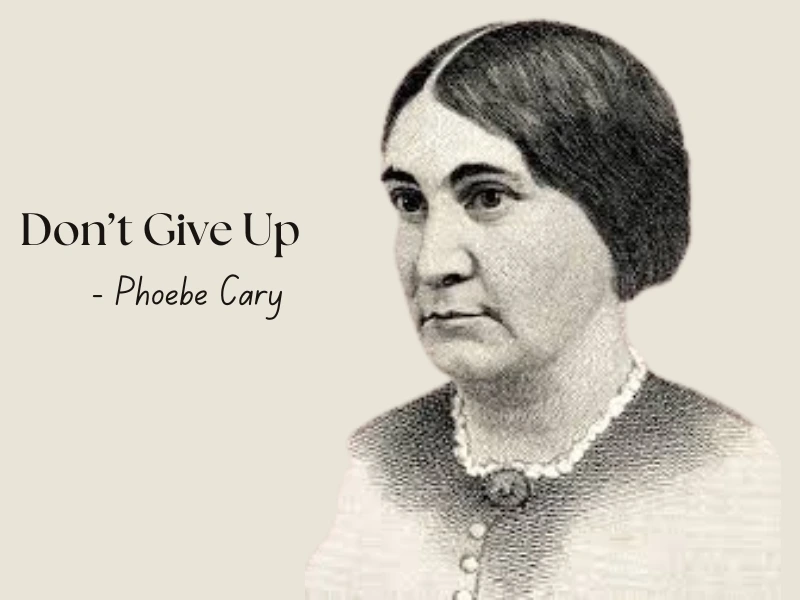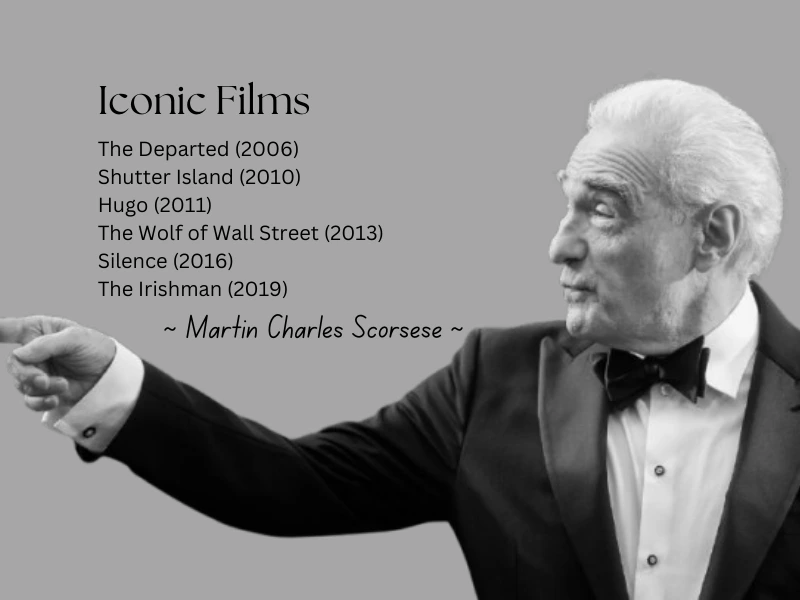Ronald Reagan was the 40th President of the United States of America. His service took place from 1981 to 1989. He was a very influential and a very, genuinely powerful president. He ended the Cold War and changed the history of the world with his gestures. Coming from an acting background, the profession didn’t take much time to flourish for him.
Personal details
| Born | Ronald Wilson Reagan February 6, 1911 |
| Died | June 5, 2004 |
| Political party | Republican (from 1962) Democratic (until 1962) |
| Spouses | Jane Wyman Nancy Davis |
| Children | Maureen, Michael, Patti, and Ron |
| Education | Eureka College (BA) |
| Occupation | Actor, Politician, Sports broadcaster, Union leader |
Early Life and Family Background
Ronald Wilson Reagan was born on February 6, 1911, to Jack Reagan, a shoe salesman, and Nelle Reagan, who managed the household. His parents being middle class instilled him with a sense of diligence and optimism, which he also learned.
Education and Early Career
In 1937, Reagan attended Eureka College to study economics and sociology, remaining on this campus to lead his student government in addition to other activities in the field of athletics and in theater productions. Once he graduated, Reagan started working as a sports announcer on radio broadcasts that would hone his voice further as a communicator.
Reagan’s Acting Career in Hollywood
He developed an extremely successful movie acting career in Hollywood in the late 1930s. He appeared in more than 50 films, including Knute Rockne, All American, and Kings Row. This was well enough to make him a popular actor for much of the 1940s and 1950s.
Ronald Reagan’s Movie
Ronald Reagan has been portrayed in several films and documentaries since he was born and even while he was the 40th President of the United States. Some of the movies and projects about him include:
- 1. “Reagan” (2023): A biopic that traces his life from Hollywood’s early days to becoming the president. The movie will be a mix of some dramatized scenes combined with interviews in documentary form.
- 2. “The Reagans” (2003): It was a miniseries in which it would show audiences an elaborate story of Ronald and Nancy Reagan’s rise to political power, their personal issues, and their influence in the period they held as president.
- 3. “Killing Reagan” (2016): In reference to the book Bill O’Reilly and Martin Dugard, it is the TV movie regarding events in the assassination attempt made on Reagan in 1981 and after his attack.
- 4. “Ronald Reagan” (2021): Documentary: Political career and Life about Reagan, with some historic images and commentaries by historians and politicians
- 5. “Killing Kennedy” (2013): A film where the movie will mostly talk about John F. Kennedy but then introduces Reagan as part of the characters, showing him during the 1960s and his life as well.
- 6. “The Gipper” (2017): A film depicting the life of Reagan, beginning from being a Hollywood actor to a political personality and how his experience in football helped him become what he became.
Transition from Hollywood to Politics
Reagen’s interest in politics came when he was the president of the Screen Actors’ Guild, a time that saw him grow very close to the issues that were affecting Hollywood then. Originally a Democrat, he changed his political stand during the 1960s to become a Republican; his main reason he says is the concern he had over the size the government had gotten to be.
Governor of California
In 1966, he was elected the Governor of California. Among his successful achievements in government were his ability to contain government expenditure, reform the welfare programs, and contain student riots. He served as one of the greatest governors the state of California had because of his public office post.
Becoming the 40th President of the United States

In 1980, Reagan vied for the presidency and eventually emerged the winner of that landslide victory of the 40th President of the United States. He managed to defeat then incumbent President Jimmy Carter, promising his countrymen a restoration of confidence in America and bringing in good times again.
Key Policies of Reagan’s Presidency
Economic Reforms and Reaganomics
The Reagan economic policy, often called Reaganomics, was a reduction in taxes, controlling inflation, and deregulating industries. He believed that tax reduction would increase economic growth through the stimulation of more investing in job creation activities by businesses.
Ronald Reagan Tax Policy
One of the cornerstones of policies formed by Ronald Reagan, but also quite well known in the common tongue as belonging to “Reaganomics,” is taxation. The tax policies of his administrations represented a significant component of his broader economic policy, tasked with stimulating economic growth. The following are key considerations about his tax policies:
- Tax Cuts: He brought general income tax levels sharply down and, in particular, his Economic Recovery Tax Act of 1981 cut the general income tax rates by 25% and from 70% to 50% at the top rate and 14% to 11% at the bottom rate.
- Supply-Side Economics: He also said that lowering taxes would create investments, thereby increasing productivity and boosting the economy, often referred to as supply-side economics or “trickle-down” theory.
- Tax Reform Act of 1986: This law rationalized the tax code, widened the tax base, and lowered the highest individual rate to 28%. Several loopholes were also closed in a move to rationalize the system.
- Deficit Concerns: Despite the tax cuts that made the economy grow, large federal deficits arose from them, forcing Reagan to consent to some tax hikes in his later years to curb the deficit.
Foreign Policy and the Cold War
Reagan’s foreign policy was basically a Cold War-oriented one where the end of it was in sight and the Soviet Union was opposed. Defense spending was increased, and the principle of peace through strength was advocated for, as well as support for anti-communist movements around the world.
Reagan’s Role in Ending the Cold War
Reagan did play a great role in ending the Cold War. The very persuasive anti-Soviet rhetoric coupled with the connection to Soviet leader Mikhail Gorbachev brought on an era of thawing relations. His speech at the Berlin Wall in 1987, “Rip down this wall,” set him firmly on the outstanding side of freedom and democracy.
Also read Bal Gangadhar Tilak biography
Assassination Attempt on Ronald Reagan
Just six weeks after his inauguration, Reagan faced an assassination attempt in March 1981 from John Hinckley Jr., who was trying to assassinate him. He gained recovery fast, and strength and optimism under care won the hearts of people in America for Reagan.
Reagan’s Domestic Policies
Domestically, Reagan aimed to decrease the role of the federal government in the lives of people. He espoused the virtues of decreased taxes, limited intervention by the government in economic life, and a strong national defense. He was also very zealous on issues of crime and drug enforcement.
Legacy of Reagan’s Presidency
Most memorable regarding Reagan is the renewed American patriotism, this improved economic stage, and participation in ending the Cold War. Broadly, he restored Americans’ confidence following the trying years through the 1970s. His administration is hugely influencing the Republican Party’s ideology even to date.
Post-Presidential Life
After he retired from office in 1989, Reagan returned to his ranch in California. He didn’t really retire from public life; instead, he continued speaking out and even writing his memoirs. In the post-presidency of the president, there was certainly broader adoration for everything that he had done in shaping modern America.
Ronald Reagan Quotes
“The greatest leader is not necessarily the one who does the greatest things. He is the one that gets the people to do the greatest things.”
“If we ever forget that we’re one nation under God, then we will be one nation gone under.”
“The most terrifying words in the English language are: I’m from the government and I’m here to help.”
“There is no limit to the amount of good you can do if you don’t care who gets the credit.”
“A nation that cannot control its borders is not a nation.”
Battle with Alzheimer’s Disease
In 1994, he announced that he was suffering from Alzheimer’s disease, a progressive neurological condition. He spent his remaining years in private with his wife Nancy Reagan by his side until his death on June 5, 2004.
Some Notable Awards and Honors received by Ronald Reagan
- Presidential Medal of Freedom (1993): This is the most elevated civilian honor in the United States bestowed by President George H.W. Bush in the name of public service and contributions.
- Congressional Gold Medal (2002): This award was given to Reagan and his wife Nancy to the American society and towards world peace.
- Honorary Knight Grand Cross of the Order of the Bath (1989): This is one of the highest awards the United Kingdom can award a non-British citizen. It was received from Queen Elizabeth II.
- Naming of Ronald Reagan Washington National Airport (1998): This includes the Washington National Airport that was renamed after him as a way of commemorating his impact on the country.
- Ronald Reagan Presidential Library: This library and museum located in Simi Valley, California, was established to commemorate his legacy and preserve it as a president.
- California Hall of Fame Inductee: He was inducted into the California Hall of Fame as Governor of California and President of the United States.
Conclusion: Ronald Reagan’s Impact on America
Ronald Reagan’s exercise of presidency molded American politics, economics, and foreign policy in a way never witnessed in history. His strong leadership helped end the Cold War, restore the American economy, and try to reinstate national pride. This transformational leadership established a hallmark in American political life.
What was the cause of Ronald Reagan’s death?
Ronald Reagan died of pneumonia, a complication of Alzheimer’s disease, on June 5, 2004, at age 93.
What happened during Ronald Reagan’s presidency?
Reagan’s presidency (1981–1989) was defined by economic policies known as “Reaganomics,” the end of the Cold War, tax cuts, increased defense spending, and a push for smaller government.
Why was Ronald Reagan’s nickname “Dutch”?
His father nicknamed him “Dutch” because, as a baby, Reagan had a Dutch boy haircut and looked like a “fat little Dutchman“.
What movies is Ronald Reagan known for?
He appeared in several leading films like Knute Rockne, All American (1940), Kings Row (1942), and Bedtime for Bonzo (1951).



